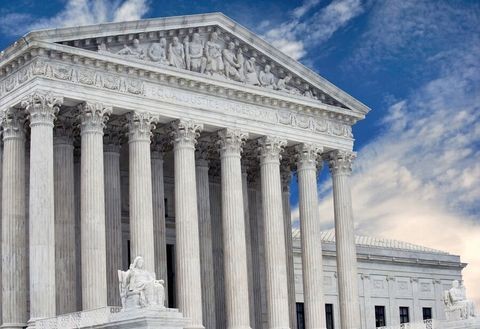Ninth Circuit Affirms RAND Rate-Setting Decision in Microsoft v. Motorola
Client Alert | 1 min read | 07.30.15
Today a panel of the Ninth Circuit Court of Appeals issued its decision in the closely watched Motorola v. Microsoft case. The panel affirmed the Washington federal district court decision setting a reasonable and nondiscriminatory (RAND) royalty rate for Motorola's standard-essential patents (SEPs) for WiFi and video-coding technology. As explained in our prior alert on the April oral argument, the case raises important issues for all parties involved in SEP license negotiations. The Court held:
- Jurisdiction. TheNinth Circuit affirmed its jurisdiction over the appeal, in deference to the law-of-the-case doctrine and its own earlier decision affirming jurisdiction over a contract dispute between the parties. Microsoft Corp. v. Motorola, Inc., 696 F.3d 872 (9th Cir. 2012). And it held that it, not the Federal Circuit, should hear the appeal.
- RAND Ruling. The Ninth Circuit upheld the district court's bench trial result, including its hypothetical agreement rate-setting approach, as well as the introduction of that result at the jury trial on breach. The Ninth Circuit held that the result of the rate-setting trial was not advisory, but rather was an "essential factual aspect of the breach-of-contract determination."
- Verdict and Damages. The Ninth Circuit also affirmed the district court's denial of Motorola's motion for a judgment as a matter of law and the jury's subsequent verdict in Microsoft's favor. The panel affirmed Microsoft's $14.52 million in damages related to its defense against injunctive actions and the costs of moving a European distribution facility. Finally, the panel held that neither the Noerr-Pennington doctrine nor Washington state law concerning attorneys' fees foreclosed litigation cost-related damages in these circumstances.
Contacts
Insights
Client Alert | 3 min read | 05.15.24
On May 9, 2024, the U.S. Supreme Court issued a ruling in Warner Chappell Music Inc. et al. v. Sherman Nealy et al., Case No. 22-1078, resolving a circuit split in federal courts as to whether it is possible to recover copyright damages beyond the three-year filing statute of limitations. The court held in a 6-3 ruling that there is no time limit on monetary recovery, while leaving the three-year filing deadline intact.
Client Alert | 3 min read | 05.14.24
Client Alert | 4 min read | 05.13.24
Harmonizing AI with EEO Requirements: OFCCP’s Blueprint for Federal Contractors
Client Alert | 7 min read | 05.13.24
SEC Enforcement Actions Signal Enhanced Scrutiny Around “AI Washing”



